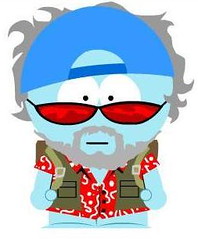Ethiopia
This past week was a blur of meetings—some usual, some unusual. This is the description of the out of the ordinary encounter.
Two men from Ethiopia named Teshome and Fissae came to visit our university to learn how to set up a career services center like ours. Imagine that. What do you think of when “Ethiopia” comes to mind? Mussolini’s crazy World War II adventure there? The war with Eritrea? Skeletal-looking children with flies crawling in their eyes? Probably any of these images pop up but certainly not one where any sort of “normal” life is possible. Evidently, it still is.
My job was to explain all the things we do with electronic tools in the office: web sites, on line databases, CD’s, Internet based assessment tools and career fairs. They were especially interested in all this and were excited to implement some of the things we showed them.
At lunch, we had invited an anthropology professor who happens to be the local expert on Ethiopia. He had just returned from another visit there in the spring. Our visitors lit up as he mentioned certain native foods he liked, for instance, a spicy chicken stew that he wished he could find here. The professor told a story of seeing people cutting up a cow which was not quite dead, and eating the still quivering meat. Nice little lunch time anecdote. It was good to have him there, since the visitors enjoyed comparing notes with him about certain shop keepers in a little town they all knew.
I asked them about how job searches were done in their country, and Fissae said that most students hope that the government hires them. If they don’t get a state job, though, they feel lost. Teshome taught me about the interviewing process. He remarked that he likes to “undermine” the candidates in interview situations. At first I thought he was misusing the English word, but no, he really meant what he said. He likes to put students through very stressful interviews because he feels that that way, he can see what they are really like. During our discussion, he seemed surprised that candidates were always so nervous during interviews, and here he was the cause of it all!
As we worked our way through the meal, the visitors would talk quietly to each other in their own language, and Yolanda, the other assistant director (who happens to be African American) was curious. Fissae took out a pen and since he was looking for a piece of paper, I gave him one of my business cards. He then wrote out our names in their language on the back of it.. It was kind of neat to see: The characters almost seemed to blend Arabic and Chinese. Draw a line one way it means one thing, another way, another thing entirely.
Privately, I later learned that Fissae had taken Yolanda aside and told her how happy he was to see that she had risen to such a position. It was kind of touching. I asked her how she felt meeting people from Africa, even though it’s a huge place and you can't generalize, I wondered if she felt the way I did when going to Ireland for the first time and seeing people who look like me. She said it was very exciting to have met them and learned a little about their culture.
One final note: along with their planned career center, there will also be an AIDS prevention office, since the disease is devastating the country with several million people infected. Here are some things I saw in the World Fact Book: the average life expectancy is 48 years, there are eight AM radio stations in the country (sorry—no FM) and there are 83 airports, 14 of which have paved runways.
How remarkable is it that these two men have such hope and such love for their country—a place most of us probably consider lost and quite without hope.

